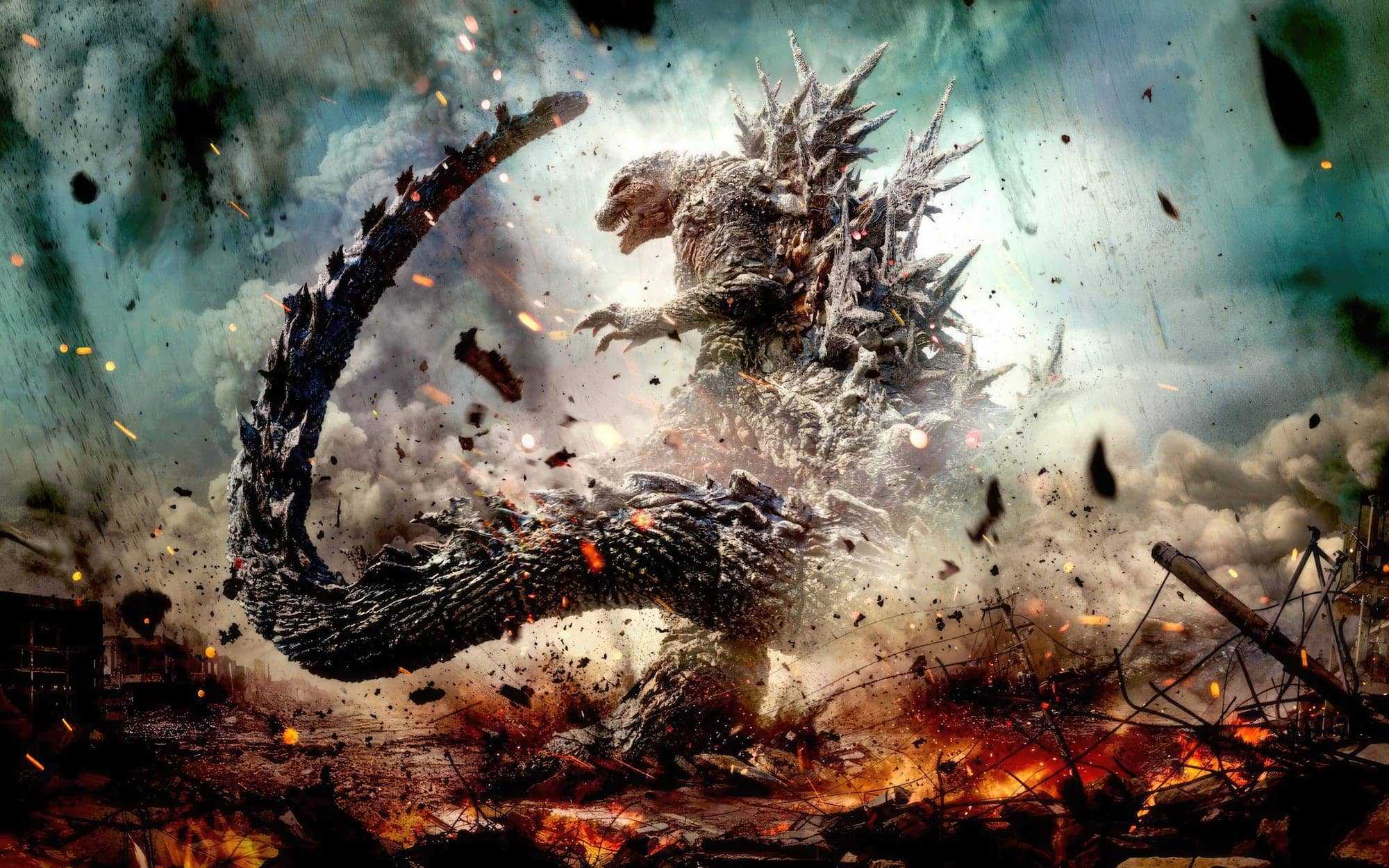Takashi Yamazaki’s Godzilla Minus One Is One of the Greatest Godzilla Movies of All Time (Review)

Here’s the best way I can describe Takashi Yamazaki’s triumphant Godzilla Minus One, the latest installation in the iconic and long-running movie monster franchise: it takes almost everything that’s beloved and celebrated about the Big G’s various incarnations, distills it down to its purest essence, and delivers a story that’s filled with as much heart and human drama as it is with kaijū spectacle.
World War II is over and Tokyo’s citizens are struggling to rebuild their lives amongst the city’s ruins. One such survivor is Kōichi Shikishima (Ryunosuke Kamiki), a former kamikaze pilot who shirked his “duty” and is now wracked with survivor’s guilt. Shunned by his neighbors, Shikishima wanders aimlessly through the city until a chance encounter with a young woman named Noriko (Minami Hamabe), who is trying to care for a baby that she adopted. The trio form an unlikely — and incredibly cute — family, and though Shikishima still experiences nightmares of the war, life is slowly but surely improving.
Which is precisely when a giant lizard arrives on Japan’s shores and immediately lays waste to everything that’s been rebuilt since the war.
2016’s Shin Godzilla (directed by Hideaki Anno of Neon Genesis Evangelion fame) was as much a satirical critique of Japan’s ineffectual government as it was a monster movie. Godzilla Minus One mines some similar thematic territory. The Japanese government refuses to alert the public about the threat of Godzilla, because no one wants to be responsible for the ensuing panic. Meanwhile, the United States refuses to lend any aid for fear of provoking Russia. Which means that it’s ultimately up to the ordinary citizens of Japan, many of them still reeling from the war like Shikishima, to rise up and defend their homes, no matter the cost.
Shin Godzilla was deeply cynical and understandably so, given that it was inspired by the government’s failures during events like the 2011 Fukushima nuclear disaster. Godzilla Minus One, on the other hand, is anything but. Even as it dishes out critiques (in one pointed scene, a character lists various ways in which the Japanese government treated life cheaply during the war) and piles on the tragedy and melodrama (as Shikishima wrestles with both his demons and his feelings for Noriko), Yamazaki’s film is far from cynical.
Be it Noriko’s insistence that Shikishima forgive himself or the scenes of people scarred by war finding new purpose in the fight against Godzilla, Godzilla Minus One is both aspirational and affecting. It’s the sort of film where people say, in all earnestness, stuff like “My war isn’t over yet” and “We leave you the future” and “I want to live again” and you believe them because there’s a giant lizard with atomic breath ravaging the countryside. In other words, I got a little choked up several occasions. And while I’m hesitant to draw parallels between a Japanese monster movie set in the 1940s and 21st century America, I couldn’t help wondering what it would take for this country to move past our fears and weaknesses and come together. (Because a global pandemic obviously wasn’t enough to do the trick.)
In addition to lacking any cynicism, there’s no camp anywhere to be found in Godzilla Minus One. Humor? Occasionally. Camp? No. Instead, Yamazaki ramps up the dread that’s inspired by even just a glimpse of the Big G. The film subsequently boasts several indelible visuals: Godzilla detonating a warship with his atomic breath; shockwaves leveling Tokyo’s buildings; black rain falling on the survivors. At times, Godzilla Minus One even plays like something of a Godzilla greatest hits, visually speaking; Yamazaki tunes his movie’s CGI to evoke the miniatures and models that have populated many a classic Godzilla movie but again, without any of the associated camp. And matching the blend of old and new visuals, Naoki Satō’s haunting score knows just when to incorporate Akira Ifukube’s iconic theme from the original Godzilla movie.
There’s no doubt about it: Godzilla Minus One is easily one of the greatest Godzilla movies of all time. And though it clearly hearkens back to the Big G’s origins, as befitting a film made to celebrate his 70th birthday, it charts a refreshing new course for the franchise that feels less like a reboot and more like a rejuvenation. The movie’s final seconds clearly leave the door open for a sequel that, if it’s made (and I hope it is), will undoubtedly put both Shikishima and Japan through the emotional and existential wringer. Though alarming within the context of the film, those final seconds are proof that, nearly 70 years on, Godzilla has lost none of his potency as a cultural icon.